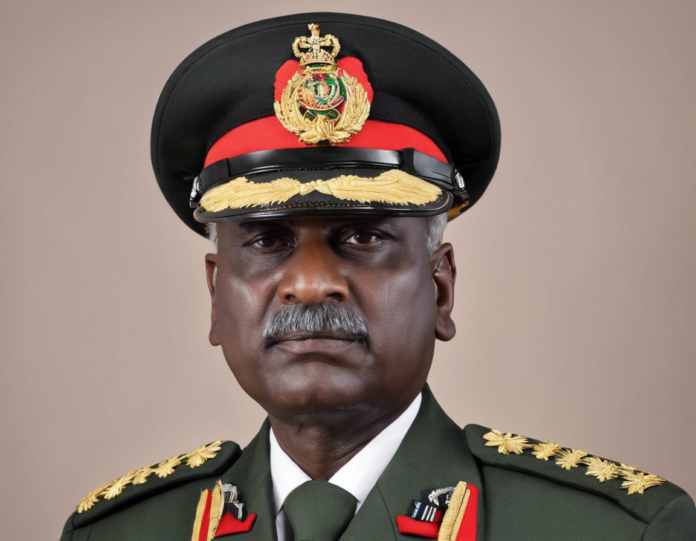In recent years, there has been a growing trend in several countries towards the establishment of a new military position known as the Chief of Defence Staff (CDS). This role represents a significant evolution in the way that armed forces are organized and managed, with the aim of enhancing coordination, collaboration, and efficiency within the military chain of command. In this article, we will delve into the responsibilities, challenges, and significance of the Chief of Defence Staff, exploring the impact of this position on national security and military operations.
The Evolution of the Chief of Defence Staff Role
Traditionally, most countries had a Chief of the General Staff or equivalent position who was responsible for overseeing the army. However, with the increasing complexity of modern warfare and the need for a more integrated approach to national defense, the role of the Chief of Defence Staff has emerged as a pivotal position within the military hierarchy. The CDS is typically a senior military officer who serves as the principal military advisor to the government and is responsible for coordinating and integrating the operations of the army, navy, air force, and other branches of the armed forces.
Responsibilities of the Chief of Defence Staff
Strategic Planning
One of the key functions of the Chief of Defence Staff is to engage in strategic planning to ensure that the military is prepared to address current and future security challenges. This involves identifying threats, assessing capabilities, and developing strategies to protect national interests. The CDS works closely with political leaders and other government officials to provide expert military advice and recommendations on defense policy and planning.
Operational Coordination
The Chief of Defence Staff is responsible for operational coordination across the various branches of the armed forces. By promoting joint exercises, training programs, and information sharing, the CDS seeks to enhance interoperability and effectiveness in military operations. This coordination is crucial for ensuring a unified and coherent response to threats, crises, and conflicts.
Resource Management
Effective resource management is another critical aspect of the CDS role. The Chief of Defence Staff must oversee budget allocation, procurement decisions, and resource distribution to ensure that the military has the necessary equipment, personnel, and capabilities to fulfill its mission. By prioritizing investments and optimizing resource utilization, the CDS plays a vital role in enhancing the overall effectiveness and efficiency of the armed forces.
International Engagement
In an increasingly interconnected world, the Chief of Defence Staff is also tasked with international engagement. This involves cooperation with foreign militaries, participation in multinational operations, and representation of the armed forces in international forums. By fostering relationships with allies and partners, the CDS strengthens military alliances, promotes security cooperation, and advances national interests on the global stage.
Challenges Faced by the Chief of Defence Staff
While the role of the Chief of Defence Staff offers numerous opportunities to enhance military effectiveness and efficiency, it also poses several challenges and complexities. Some of the key challenges faced by CDS include:
Balancing Service Interests
One of the primary challenges for the Chief of Defence Staff is balancing the interests of the various military services. Each branch of the armed forces may have its own priorities, traditions, and organizational culture, making it essential for the CDS to navigate competing interests and foster a cohesive and collaborative environment.
Political Sensitivities
As the principal military advisor to the government, the Chief of Defence Staff operates in a politically sensitive environment. Navigating political dynamics and ensuring alignment between military priorities and government objectives can be a delicate and complex task, requiring diplomacy, strategic communication, and political acumen.
Technological Advancements
Rapid technological advancements and evolving security threats present ongoing challenges for the Chief of Defence Staff. The CDS must stay abreast of emerging technologies, cybersecurity risks, and unconventional warfare tactics to ensure that the military remains agile, adaptive, and prepared to counter emerging threats.
Budget Constraints
In many countries, defense budgets are under pressure, requiring the Chief of Defence Staff to manage resources judiciously and find innovative ways to achieve military objectives within budget constraints. Balancing the need for modernization, readiness, and sustainability poses a significant challenge for the CDS in optimizing resource allocation.
Significance of the Chief of Defence Staff Role
The establishment of the Chief of Defence Staff position reflects a broader recognition of the need for integrated and coordinated military leadership in the face of complex security challenges. By bringing together the expertise and perspectives of the army, navy, air force, and other military branches, the CDS promotes jointness, synergy, and unity of effort in defense operations. This integrated approach enhances operational effectiveness, fosters inter-service cooperation, and facilitates a more efficient and responsive military structure.
Moreover, the Chief of Defence Staff serves as a strategic bridge between the military and civilian leadership, providing expert advice, strategic guidance, and military analysis to support decision-making at the highest levels of government. By promoting civil-military integration and fostering a shared understanding of defense priorities, the CDS role contributes to enhanced national security, crisis management, and strategic stability.
Frequently Asked Questions (FAQs)
1. What is the difference between the Chief of Defence Staff and the Chief of the General Staff?
The Chief of Defence Staff typically has a broader mandate than the Chief of the General Staff, encompassing responsibility for all branches of the armed forces and focusing on strategic, operational, and resource management aspects of defense. In contrast, the Chief of the General Staff traditionally had a more narrow focus on overseeing the army’s operations and readiness.
2. How is the Chief of Defence Staff appointed?
The appointment process for the Chief of Defence Staff varies by country but often involves nomination by the military leadership, approval by government officials, and endorsement by the head of state or commander-in-chief. The selection criteria typically include seniority, experience, leadership qualities, and strategic vision.
3. What impact does the Chief of Defence Staff have on military modernization efforts?
The Chief of Defence Staff plays a critical role in driving military modernization efforts by identifying capability gaps, prioritizing investments, and advocating for technological advancements. By aligning modernization priorities with strategic objectives and operational requirements, the CDS contributes to enhancing the military’s effectiveness, resilience, and technological advantage.
4. How does the Chief of Defence Staff interact with other government agencies and international partners?
The Chief of Defence Staff engages with other government agencies, such as the Ministry of Defense, intelligence services, and security agencies, to coordinate defense policy, planning, and operations. The CDS also interacts with international partners through military alliances, joint exercises, and multilateral forums to promote cooperation, interoperability, and collective security.
5. What are the key qualities and skills required for the Chief of Defence Staff role?
The Chief of Defence Staff must possess strong leadership abilities, strategic acumen, diplomatic skills, and operational experience. Effective communication, decision-making, and crisis management capabilities are essential, along with a deep understanding of military doctrine, national security challenges, and defense policy. The CDS should also demonstrate integrity, professionalism, and a commitment to upholding ethical standards and values in military leadership.
Conclusion
In conclusion, the Chief of Defence Staff plays a pivotal role in shaping the strategic direction, operational effectiveness, and organizational cohesion of the armed forces. By providing expert military advice, promoting jointness and interoperability, and fostering collaboration with government and international partners, the CDS contributes to enhancing national security, defense capabilities, and strategic resilience. The evolving role of the Chief of Defence Staff reflects a commitment to modernizing military leadership, enhancing inter-service coordination, and adapting to the complexities of contemporary security challenges. As the global security landscape continues to evolve, the Chief of Defence Staff will remain a key figure in advancing defense innovation, cooperation, and preparedness for an uncertain and dynamic future.








